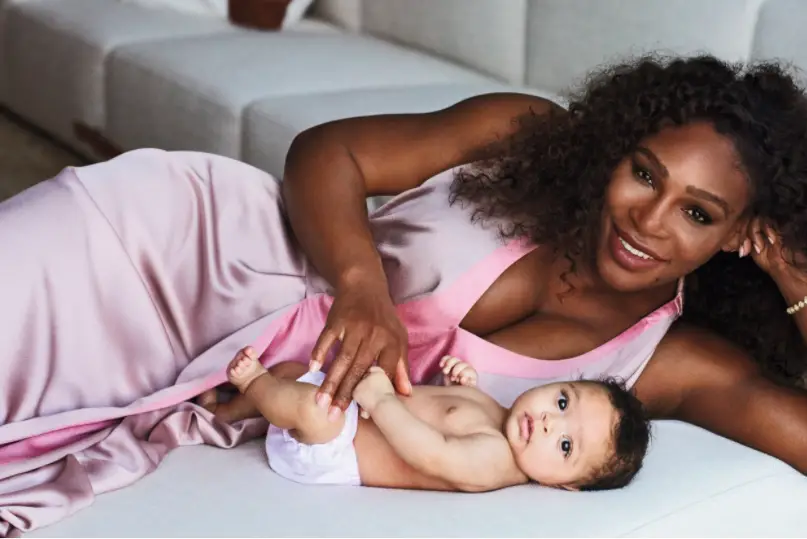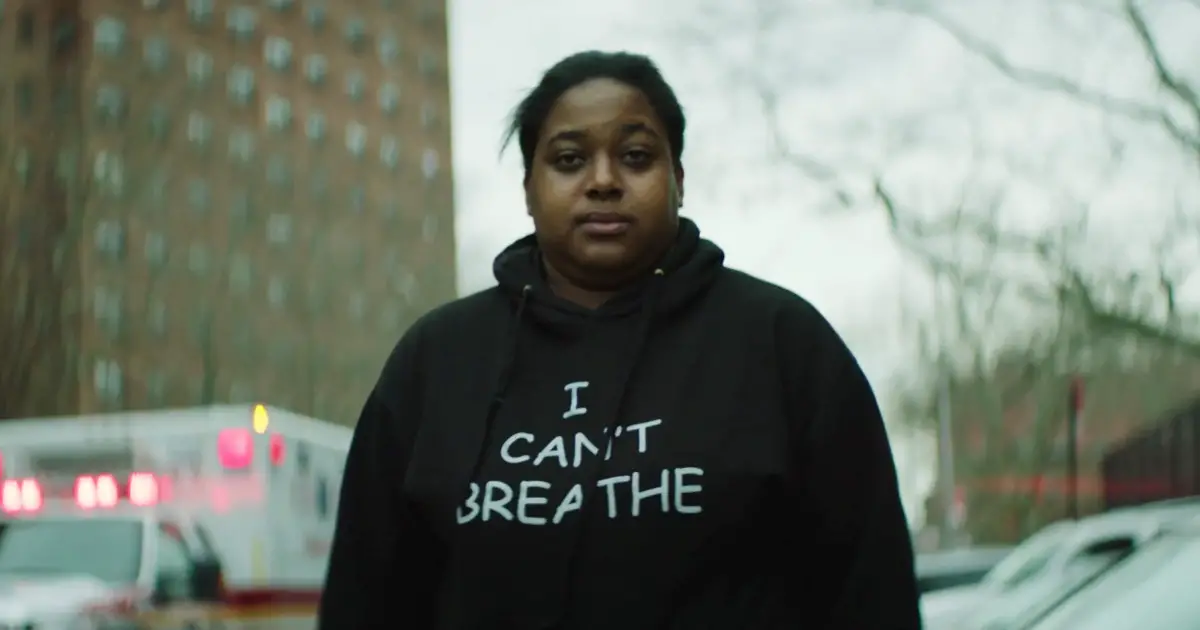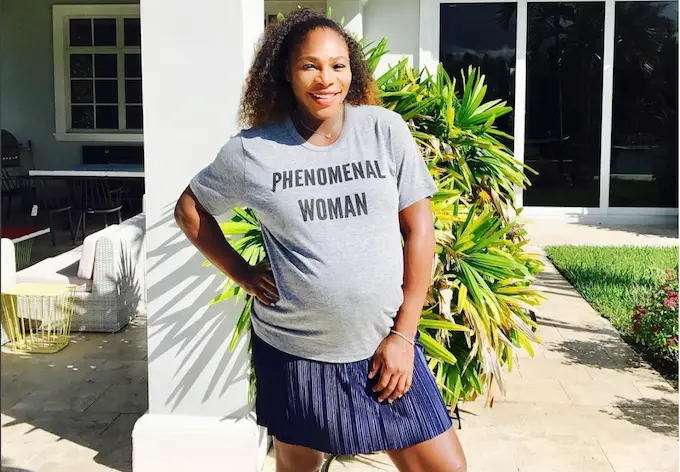Since becoming the second African-American woman to win the U.S. Open at the young age of 17, Serena Williams has been a prominent and inspirational figure in the world of sports for nearly 20 years. The tennis maven has long represented resilience, strength and the ability to beat the odds.
Even Williams, however, was not able to escape the severe complications that many new mothers face during and after childbirth. Though she had an easy pregnancy, Williams’ postnatal experience was like a nightmare. Following her emergency C-section, Williams felt shortness of breath and, because of her history of blood clots, immediately assumed something was amiss.
“Serena lives in fear of blood clots” Vogue stated in their February issue, detailing Williams’ postnatal story.
Still gasping for air, Williams went to the closest nurse and told her what she felt was wrong. The nurse challenged her, but after Williams kept persisting, she was finally able to receive an ultrasound on her legs and a CT scan. Sure enough, the CT scan showed several blood clots in her lungs. “I was like, listen to Dr. Williams!” she said after proving the nurse wrong.
Unfortunately, Williams’ harrowing ordeal didn’t stop there. The new mother’s C-section wound popped open following a set of severe coughing spells caused by her pulmonary embolism.
During surgery, doctors found out that a large hematoma had flooded her abdomen. After several surgeries, Williams was finally able to come home, yet she became bedridden for her first six weeks of motherhood.

Despite Williams’ harrowing ideal, she is very fortunate to have survived this dreadful experience. Many mothers, especially black mothers, aren’t so lucky.
The Center for Disease Control and Prevention states that black mothers in America die at three to four times the rate of white mothers. This is said to be one of the largest of all racial disparities in women’s health.
To further explain the situation, an article by ProPublica states that a black woman is 22 percent more likely to die from heart disease than a white woman, 71 percent more likely to die from cervical cancer and 243 percent more likely to die from pregnancy or childbirth-related causes.
Even when a black woman and a white woman suffer from the same condition, black women are still more likely to die than white women.
Many are probably under the impression that maternal death is not an issue in America. These statistics, however, paint a very different and troubling picture. Though the situation has improved for women of other races, the healthcare system continues to fail black mothers.
MomsRising states that the fact that black mothers are at an increased risk of death has nothing to do with age, parity or education.
Shalon Irving, an elite epidemiologist at the Center for Disease Control and Prevention, died just three weeks after giving birth from complications associated with high blood pressure. Following childbirth, Irving insisted there was something wrong with her body.
Irving’s nurse told her that there was nothing they could do and that she had to go home and wait to feel better. The new mom was given pregnancy-related hypertension medication, but it proved to be ineffective; Irving died later that night. Even the incredibly successful child of Dartmouth graduates was not immune to maternal mortality.
Black mothers from all walks of life are dying and they’re more likely to die than any other race. The California Department of Public Health found that the mortality rate for black women was, alarmingly, 46 deaths for every 100,000 live births from 2006 to 2008.
On the contrary, the rates for Asian, White and Hispanic women during the same time period ranged from 9 to 13 deaths per 100,000 live births. Black women in California have a maternal mortality risk comparable to rates in less developed countries, such as Kazakhstan and Syria.
The saddest part of this troublesome predicament is that most of these deaths are completely preventable. In the case of Kira Johnson, the mother died from massive blood loss less than 12 hours after delivering her son via C-section.
Blood was seen in Johnson’s urine at approximately 5 p.m., however, her doctor was not notified of any internal bleeding until almost midnight. By early morning, another black mother had lost her life.
Erica Garner, activist and daughter of Eric Garner, is also among the countless black women who have died during or within one year of childbirth.

“Risk factors like lack of quality healthcare, inadequate postpartum care and chronic stress contribute to maternal mortality, all of which disproportionately impact Black women,” said Katie Mitchell in an article on Garner for Bustle. “The combination of institutionalized racism, chronic stress and the physical stress of childbirth can be deadly, and some believe that this was the case for Garner, as it is for so many Black women in the United States.”
Both institutionalized racism and biased healthcare have a lot to do with the alarming rate of black mothers dying during or shortly after childbirth. Just as in the case of many of the black mothers mentioned, healthcare professionals often choose to ignore the concerns of black women.
In most situations, many choose to tune out the concerns of black women and this is ultimately leading to their deaths.
Serena Williams, thankfully, was able to convince her nurses and doctors that something was wrong with her body. Most women, however, do not have the same power as her, thus their cries are often silenced.
Racial bias in the healthcare sector is nothing new. The Guardian states that black patients are half as likely to receive pain medication as white patients. A black patient is more likely to be treated as an “other” by medical professionals.
“Black patients are not afforded the luxury of being seen in EDs, physician offices and clinics as just patients in need of help and healing,” said Keisha Ray, a postdoctoral fellow with the McGovern Center for Humanities and Ethics at the University of Texas Health Science Center at Houston. “Rather they are seen as less than human, drug seekers and overall exaggerators.”
To be both black and a woman in America is to be regularly dismissed and disregarded. Black women are still the most disrespected group in America and the apathy that others have toward them does not stop even during the vulnerable times of pregnancy and childbirth. It is imperative that the maternal mortality rate for black mothers is emphasized and acted upon.
More people need to know and care about this issue. Additionally, something needs to be done about the treatment of black women by medical professionals so that their lives are not treated as disposable.
Having a child should not be an automatic death sentence, but black mothers continue to meet tragic ends. As a community, let’s strive to listen to black women’s concerns and, to all the black female readers, don’t be afraid to stand up for yourself and your health.

















